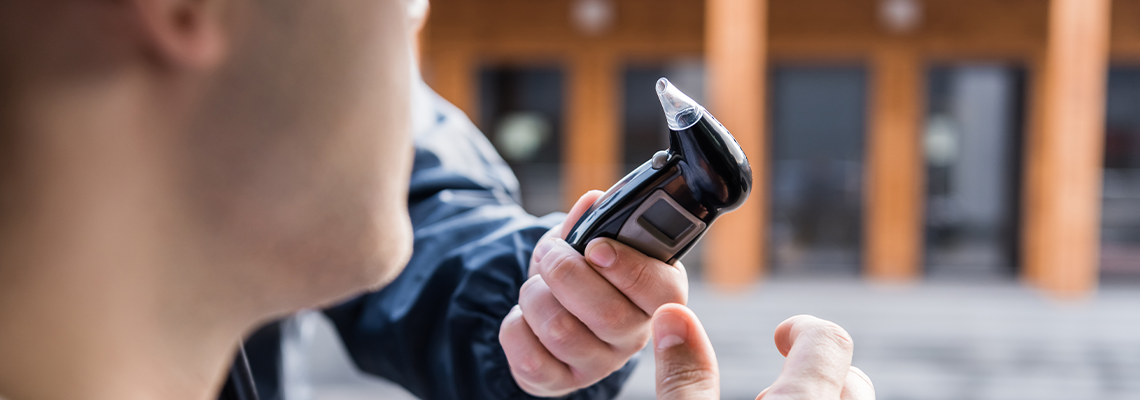
Why Did I Fail the Breathalyzer If I Wasn't Drinking?
If you have been pulled over and subjected to a breathalyzer test, you may be surprised that your reading indicates a blood-alcohol concentration (BAC) level above the legal limit, even if you weren’t drinking.
Facing DUI charges is a scary situation, but it is essential to understand that breathalyzer tests may not always be accurate. If you have been charged with drunk driving after receiving a false positive on a breathalyzer test, get help from a DUI/DWI attorney.
At Guilfoil Law Group, I help people facing all types of drunk driving charges, including underage DWI, DWI with drugs, felony DWI, and others. From my office in Kansas City, Missouri, I provide personalized and aggressive representation to clients throughout Jackson County, Platte County, Clay County, and other parts of Missouri.
What Is a Breathalyzer Test?
A breathalyzer test, also known as a preliminary breath test (PBT) in Missouri, is a handheld breath-testing device used during roadside stops. The police use breathalyzer tests to give them probable cause to make an arrest. However, it is rarely used in courts as proof that the driver’s blood alcohol concentration (BAC) was over the legal limit (0.08% in Missouri). The problem with breathalyzer tests is that they are not the most accurate piece of evidence in DUI/DWI cases.
Like other states, Missouri enacted implied consent laws. Under these laws, anyone who drives a motor vehicle on public roads in Missouri is deemed to have given consent to breath and blood tests when law enforcement has reasonable grounds to believe the person is impaired by alcohol.
Possible Reasons for a False Positive
Contrary to what you might have been told by the police, breathalyzer tests are not the most accurate way to determine a person’s BAC level. False positives can occur due to various factors, including but not limited to:
1. Improper Calibration of Equipment
Breathalyzers require proper calibration to give reliable results. Calibration ensures that the machine is working correctly and accurately. However, if the equipment is not calibrated correctly, it may give false readings. Poorly-maintained equipment and lack of proper training on how to calibrate and use the machine can also lead to a false positive.
2. Mouthwash
Some mouthwashes contain alcohol. For this reason, if you use mouthwash just before taking a breathalyzer test, it can trigger a false positive result. Mouthwash can provide enough alcohol content to give a false reading even if you weren’t drinking.
3. Medical Conditions
Certain medical and health conditions, such as acid reflux or diabetes, can cause false positives on a breathalyzer test. These conditions can lead to increased levels of acetones, which are similar to alcohol in chemical composition. Unfortunately, breathalyzers do not differentiate between acetones and alcohol.
4. Medication
Taking some medications can cause a false positive on a breathalyzer test. For example, cough syrups that contain alcohol, asthma medications, or even decongestants with alcohol can result in elevated BAC levels. Moreover, taking certain prescription medications can also alter the accuracy of breathalyzer tests.
5. Sample Contamination
The accuracy of breathalyzer tests depends on a clean-air sample. If contamination occurs during the test, it can lead to false readings. External factors, such as cell phones, radio frequency, food particles, and smoke, can interfere with the accuracy of test results.
6. The Officer’s Lack of Training or Experience
Police officers are required to be trained on how to use breathalyzers before performing them at the scene. However, if the officer lacks experience or training, it can lead to inaccurate results. In some cases, officers might use old equipment that is not properly calibrated, leading to false-positive test results.
7. Certain Foods and Drinks
Certain foods and drinks can cause false positives on a breathalyzer test. Fermented foods, such as bread, fruits, and yogurt, can result in false positives. Similarly, sweet drinks, such as soft drinks, energy drinks, and sugary juices, can increase the BAC for a short period, which can cause a false positive.
Get Help From an Attorney
If you are facing DUI/DWI charges after a breathalyzer test and believe you received a false positive test result, you might want to get legal help. As a DWI defense attorney at Guilfoil Law Group, I am dedicated to protecting your rights and fighting for the most favorable resolution of your case. Reach out to my office today to request a free case review.
